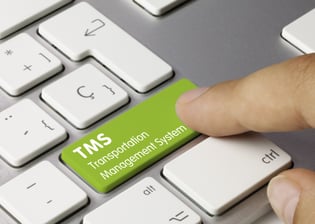 Transportation Management Systems can be leveraged within every company's supply chain to drive a for competitive advantages, whether a shipper, broker or logistics service provider.
Transportation Management Systems can be leveraged within every company's supply chain to drive a for competitive advantages, whether a shipper, broker or logistics service provider.
Transportation management software (TMS) has forever changed the logistics and supply chain industry, and as the market data indicates, there is a long runway ahead.
Not only has TMS platforms enhanced freight and shipping operations, but it has also pushed logistics and supply chains to frontline Boardroom discussion, as a way to drive a wedge between the leaders and lagards in the business community. There is a reason why the best in supply chain execution blows away the competition. Example of leaders include Amazon, Wal-Mart and 23 others listed in the Gartner Top 25 Supply Chain Leaders.
The best TMS platforms allow companies to take in a tremendous amount of data to optimize the shipments of the day, along with taking on massive supply chain network optimization what-if analysis. The long-term strategic analysis to a whole other level by bringing in market data points for "real" benchmark analysis versus the averages-of-averages type of analysis that used to occur in days past.

10 Functional Components of TMS Systems

- Carrier Management
- Procurement Management
- Route & Load Optimization
- Freight Execution Platform
- Visibility, Reporting & Analytics
- Supply Chain Communication Control Tower
- Logistics and Supply Chain Data Repository
- Freight Settlement for Audit & Pay
- Invoicing Functionality
- Reporting & Business Intelligence (BI)
All 10 components are tightly integrated together within the TMS platform to tie all internal and external company stakeholders to its control tower visibility module. The value this brings to each functional area is outlined below:
- Freight
- Optimize, plan & execute inbound & outbound product moves, along with analyzing cost and performance of freight provider partners.
- Manufacturing
- Visibility to the inbound material required for manufacturing schedule.
- Distribution
- Visibility to inbound material required to fill orders.
- Procurement / Purchasing
- Vendor management and performance reporting.
- Finance
- Freight audit, pay, invoice, calculate accruals and analyze cost performance.
- Sales
- Track customer orders and report on performance.
- Customer Service
- Track and address orders for customers.
- Vendors
- Schedule, manage and report their inbound shipments to their customers.
- Customers
- Direct access to order and shipment information.
Essentially, the 10 TMS components can be placed into the categories of optimization, execution and reporting & analysis for communication and logistics and supply chain improvement that creates tremendous benefits for its users.
.jpg?width=600&name=TMS%20Benefits%20(2).jpg)
With all the touch points involved in a transportation management software implementation one needs to establish a trust-based relationship that will be fully engaged in the process from start to finish.
In the absence of a trusted partner dealing with a new system implementation, details can slip through the cracks, exposing weaknesses while simultaneously minimizing the functionality of the final implementation.
If your company is considering a change in their transportation management software, InTek would love to be a part of the discussion. As an authorized MercuryGate reseller and integrator InTek can bring its experience and expertise of utilizing the cloud TMS platform for its logistics services managed transportation division.
For more on Transportation Management Software (TMS), that will help you in your buying journey we invite you to check out these articles:

If you're ready to take the next step, at InTek Freight & Logistics, we can help. Just tell us what you need and we'll discuss how our expertise can help with the unique shipping challenges your business faces. Rather do a bit more research first? View our Freight Guides for comprehensive articles and eBooks on all things freight and logistics.